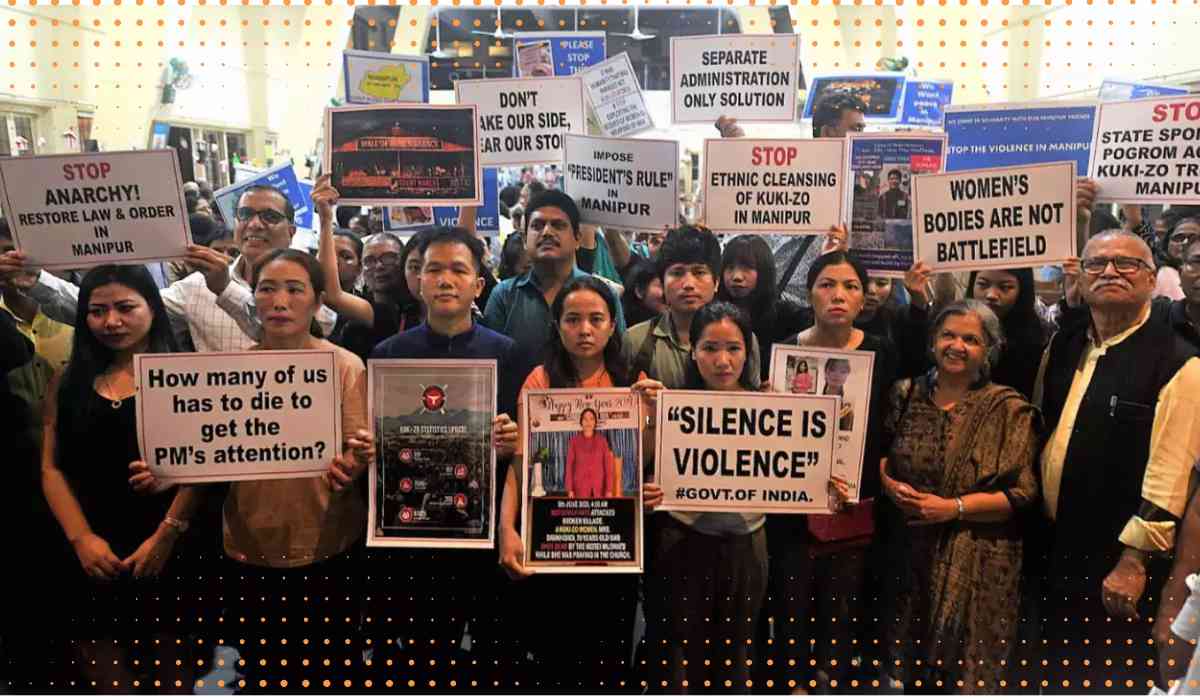Manipur, a state in India's Northeast, home to rich diversities of indigenous communities and ecosystems. The state, however, is facing a double crisis: these two major ethnic groups, the Meitei and Kuki, have been in violent conflict over years on traditional territorial claims. On one hand, large-scale oil palm and poppy seed plantations loom over the state, may lead to marginalizing indigenous peoples, destroying their livelihoods, and laying waste to the state's forests. This transformation may also change the very landscape of Manipur, with all its implications for not only its people but the environment itself, now lies at the core of a conflict that pits modern economic interests against traditional ways of life. Recent developments in the North-East, especially the thrust to expand oil palm plantations under the Oil Palm Mission Manipur and increasing influence of the Golden Triangle's drug trade, have cast a shadow over the future of the region's forests and livelihood systems of its Indigenous Peoples. Recently India increased by 20 percentage points the basic import tax for crude and refined edible oils, the government said on Friday.
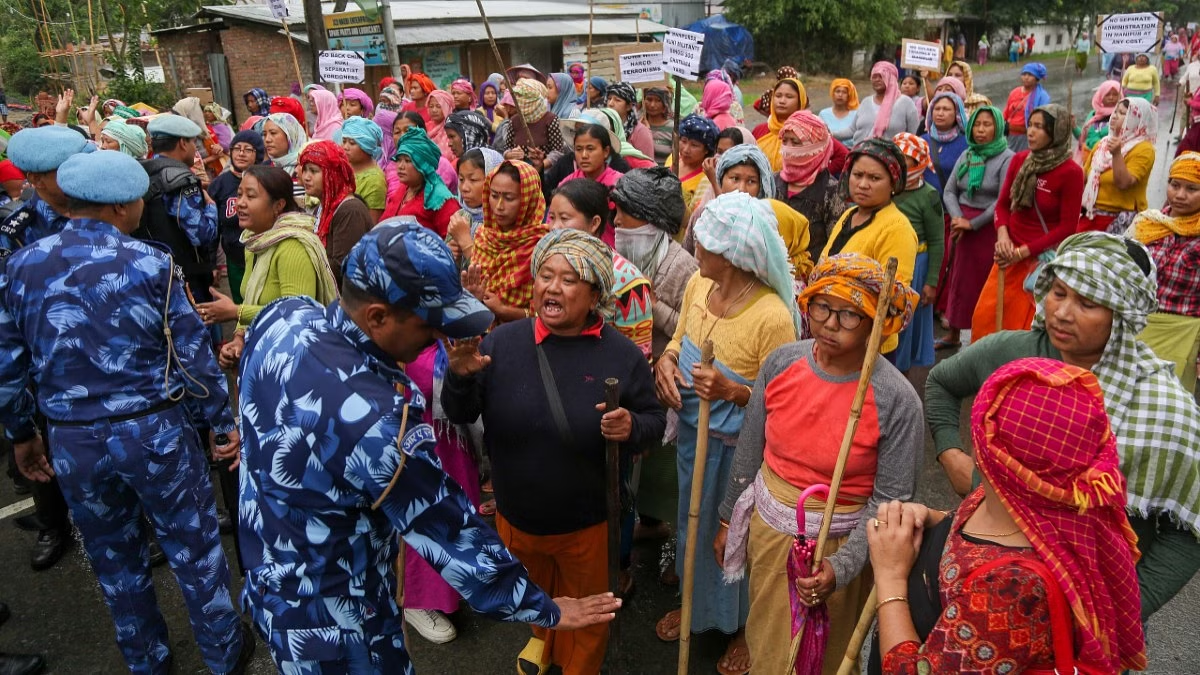
Palm Oil Expansion in manipur
The country is a huge importer of palm oil, and foreign supplies from Malaysia and Indonesia have been imported to meet the demandof the nation. In 2021, the national government initiated the National Mission on Oil Seed and Oil Palm to improve domestic production of the edible oil. The country is targeting expansion in the area under oil palm plantations to 1.65 million hectares by 2029-30, particularly targeting the North-East, with Manipur as well in the list. Recently India increased by 20 percentage points the basic import tax for crude and refined edible oils, the government said on Friday. India meets more than 70% of its vegetable oil demand through imports.
The Oil Palm Mission Manipur itself aims to bring at least 66,500 hectares of area under oil palm plantations only in Manipur. Contract farming is the strategy of the project whereby small-scale farmers are being wooed with subsidies and technical support to shift from traditional agriculture to grow oil palm. While billed as a win-win deal, the contract farming has been branded a snare for small farmers. These agreements primarily indebted the farmers, restrained them from growing other crops, and eventually compelled them to leave their lands at the mercy of the contractee. The charge is being led by big companies like Godrej Agrovet and Ruchi Soya Industries from the stable of Patanjali. For instance, Godrej Agrovet operates over 65,000 hectares of oil palm plantations across the country, with agreements reached with Manipur, Assam, and Tripura to expand the plantations further. In 2022, Godrej Agrovet said it would develop 15,000 hectares of oil palm plantations in the North-East in the next five years. The company is also importing seeds with the assistance of Malaysian palm oil firm Sime Darby, thus retaining its leading position in the Indian market for palm oil.
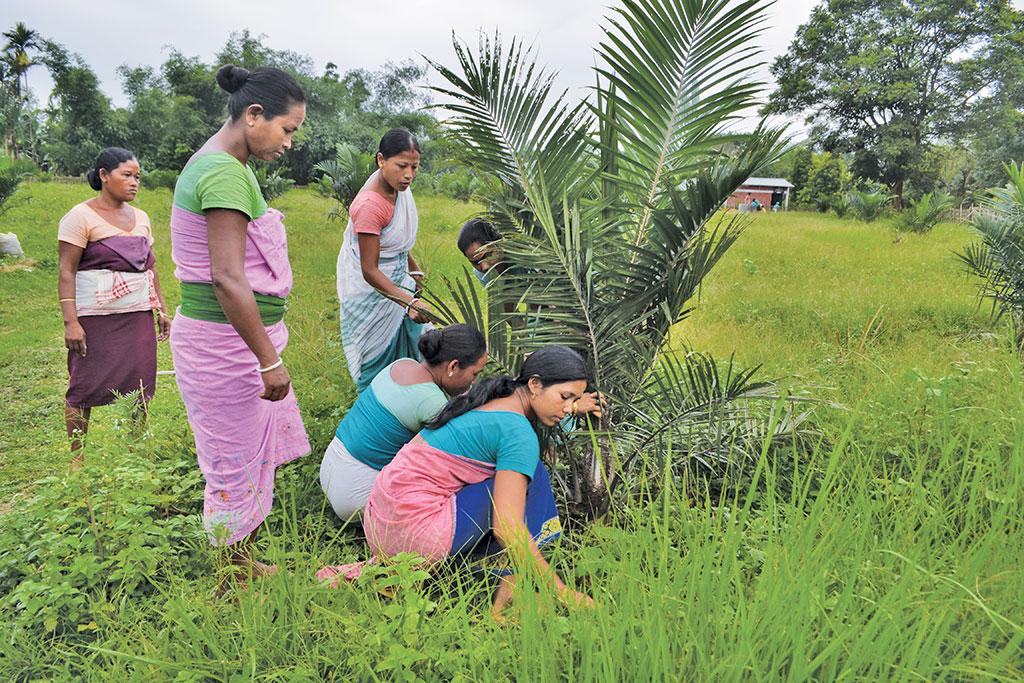
Environmental and Social Impact
It's not just forests being threatened by such plans, but also the bond of belonging to land as do the Indigenous Peoples. The shifting cultivation, Jhum, has been an important part of the lives of the Naga and Kuki communities for generations now, finding that balance between subsistence farming and rejuvenation of forests. Such a concept under the present dispensation, however, views fallow Jhum lands as "unused" or "unproductive" - a concept well used to justify conversion into palm oil plantations. Such oil palm plantations may destroy food sovereignty, water sources, and indigenous knowledge systems, thus undermining the very livelihood of these communities. But even within this backdrop of gross violations, it is maintained by the government and corporations that oil palm plantations can be responsibly managed under certification schemes like the Roundtable on Sustainable Palm Oil (RSPO). However, different local groups and farmers' unions have asserted that the large-scale oil palm plantations are not sustainable even under these schemes, may destroy their land, culture, and existence.
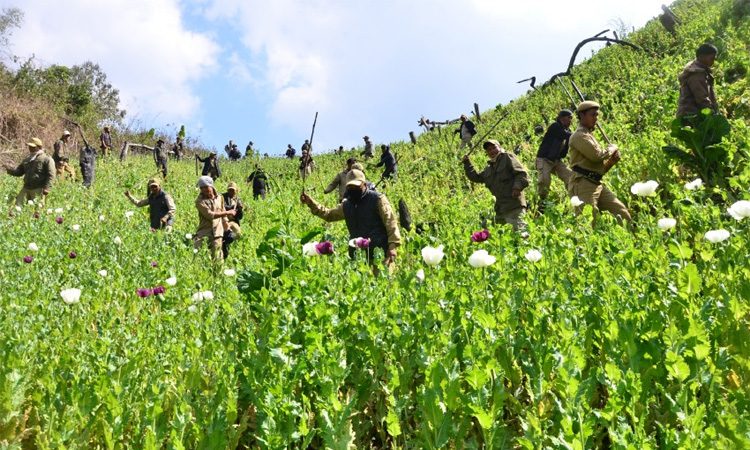
Poppy Cultivation and Influence of the Golden Triangle
This problem is compounded by the growing poppy cultivation in Manipur, especially in hill districts bordering Myanmar. With its 398 km-long border with Myanmar, Manipur has emerged as one of the major players in the drug trade related to the notorious Golden Triangle that comprises parts of Myanmar, Thailand, and Laos. This region has long been identified as a hotbed of production and trafficking in drugs, more so opium.
Poppy cultivation began in Manipur during the late 1990s, but in the last couple of years, it has grown multi-fold. Between 2016 and 2019, the CAGR of poppy cultivation in the state was as high as 79.78%. Ukhrul, Chandel, and Churachandpur emerged as the red hotbed districts for poppy cultivation as the fallout of the crackdown on narcotics in Myanmar made drug traffickers seek fresh opportunities in Manipur's mountainous stretches. In spite of the government's concerted efforts at the policy level to close in on poppy cultivation as part of its "war on drugs," only a third of the state's poppy fields have been destroyed. Therefore, with such massive areas of land still untouched by the authorities, the cultivation and drug trade thrive. At the same time, local middlemen have commenced establishing markets for crude opium in other Indian states like Uttar Pradesh and Maharashtra, further adding to the complexity of drug trade dynamics in the region. Chunks of Ukhrul district and the contiguous Saikul area in Sadar Hills of Senapati district became notorious for poppy cultivation. Saikul, in particular, emerged as a center for mass commercial poppy cultivation. Then, places like Chandel and Churachandpur also emerged as poppy cultivation areas. For example, poppy cultivation during 1996–97 in New Samtal Village under Dingpi area of Chandel District bordering Myanmar, poppy seeds bought from Ukhrul areas and from Myanmar were grown in these regions. Poppy fields started to appear in the Koubru hill range in Sadar Hills, Senapati, and parts of Tamenglong and Senapati districts.
It is reflected by research that in the mentioned areas, between 2016 and 2019, poppy farming grew at a very high rate of 79.78% per year. Hilly regions around the Myanmar border were most badly hit.In the process, as many as 4,565 acres of poppy fields were destroyed during that period in the hill areas of Manipur. Of this, maximum destruction occurred in Senapati at 2,497 acres followed by Chandel at 795 acres and Churachandpur at 791 acres. Even in the Imphal valley, poppy farming was found in the Bishnupur district, where police also conducted raids.
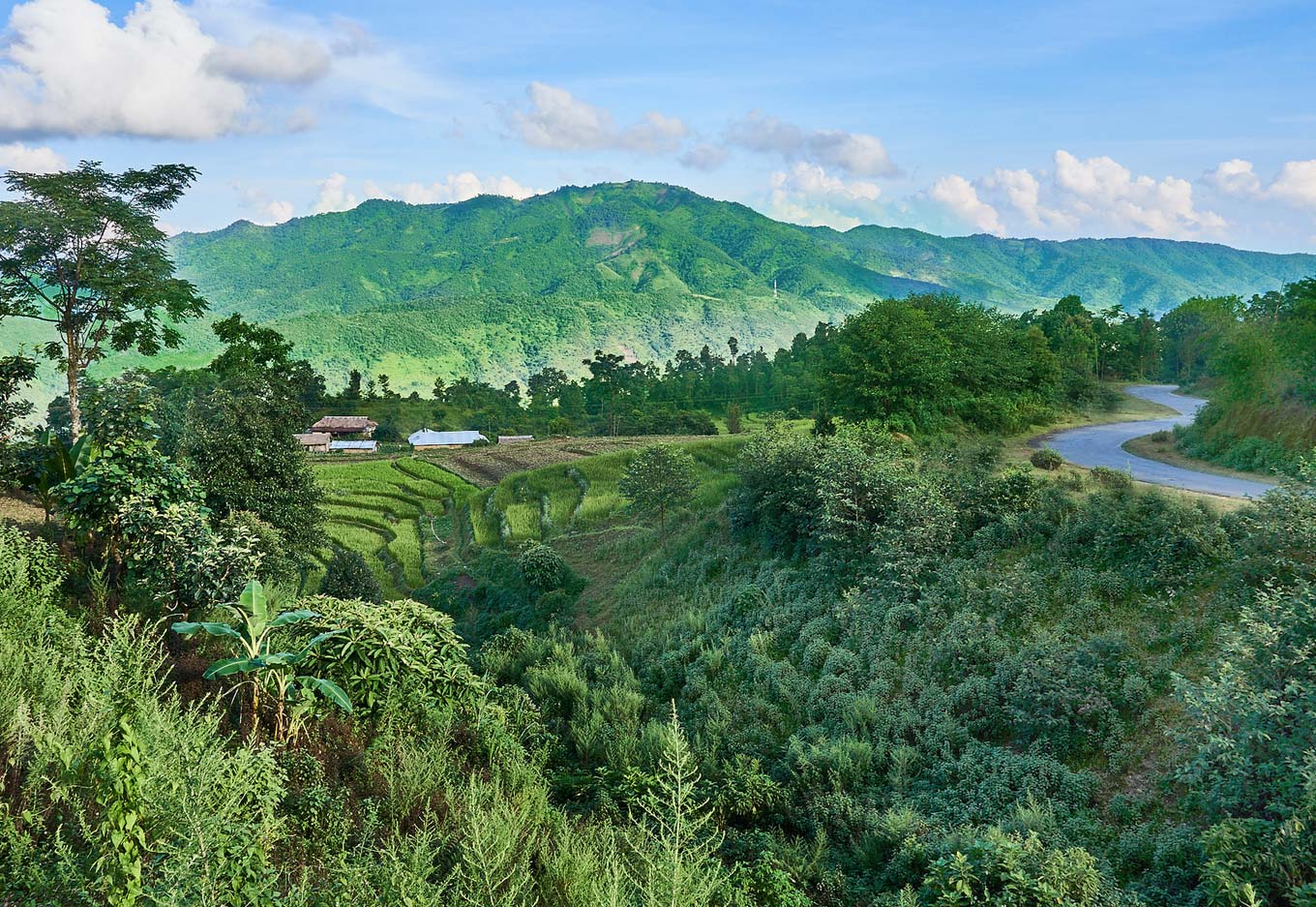
The Forest Conservation Amendment Law
In August 2023, the Indian government passed the Forest Conservation Amendment Law, which does exactly the opposite of what its name proclaims. This law opens many doors for further deforestation. Conservation under this law is severely narrowed to forests recognized after 1980. This places 28% of India's forests in a very precarious position. In Manipur, 88% of its forests are unprotected because they are not classified as official forest land. The law also enables forests within 100 km of international borders to be cleared for strategic projects without approval from the Ministry of Environment. In Manipur and the North-East states, that is more of a cause of apprehension as most of its land falls under these categories.
Inputs by Agencies
Image Source: Multiple Agencies
Ⓒ Copyright 2024. All Rights Reserved Powered by Vygr Media.

